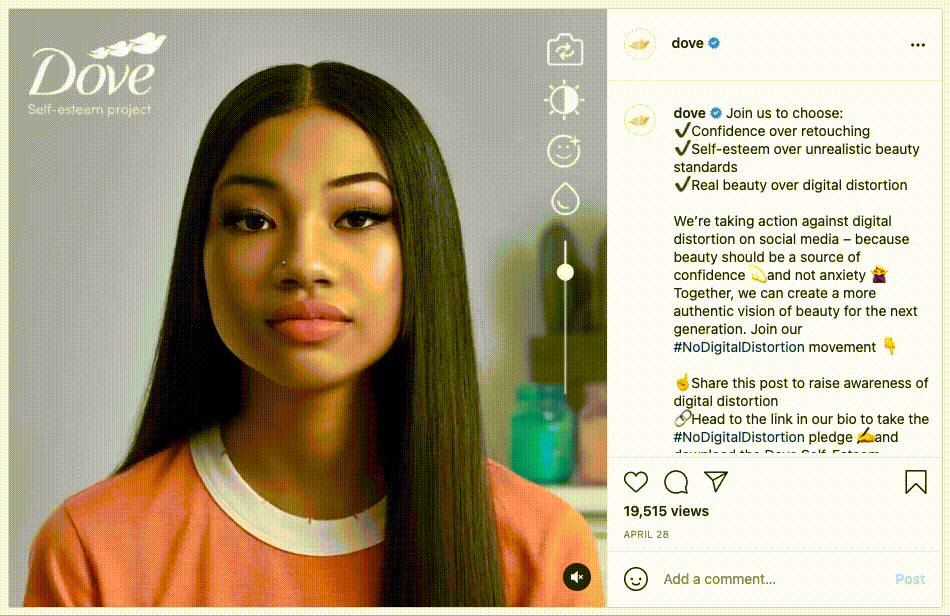The month of May features “Mental Health Awareness week” which prompted us to talk about the effects of social media on mental health, and how social platforms are addictive and have been associated with anxiety, depression, and even physical ailments.
And for that we wanted to delve into Dove’s latest campaign which launched with a film titled “Reverse selfie”. In the film we watch a young girl who shows us a highly edited photo posted on her Instagram with the caption ’my new look’.
As the name suggests, the campaign is a story told in reverse, revealing which digital effects, filters and photoshop were used to create the “look”.
In this film, the protagonist is portrayed through a highly edited photograph claiming it is “her new look” and the story is told in reverse revealing the effects that were used to create the photograph.
It is important to shed light on how most platforms influence mental health during this week. Here are some awareness insights and stats on the damaging social and mental pressures that social media has on young girls and how this campaign helped teens in being more self-confident about themselves by moving away from unrealistic beauty standards!
Why this is a necessary discussion?

Ever since the global pandemic started, there has been a huge increase in the amount of time that teens spend on social media, which went up to 44% from 22%; and their exposure to distorted images are higher and can affect confidence in people negatively according to Dove and Statista (June 2020).
This unfortunate reality has even prompted social media platforms, such as instagram and youtube, to create kids-friendly versions to protect them from bullying, self esteem and harassment.
Sadly, this issue doesn’t only lie with young adults. In fact, more than 60% of females claim that images on social media affect their overall self-esteem and cause them to compare their appearance to the images they see online. According to Dove, the findings of the study show that women need help in “using social media in a positive way, making it more about self-expression and less about validation,” which is what the brand’s mission is and the main message behind this creative campaign.
How to keep this conversation going
Dove wants to advocate the expression of realistic beauty standards and continues the conversation using their Self Esteem Project through a microsite they have built which aims at combating these notions and providing helpful resources such as a downloadable confidence kit and a free self-esteem tool made for parents and teachers. The brand even enlisted singer and body confidence advocate Lizzo to support the goal of making social media a more positive experience for girls.
In summary we love how this campaign re-visited in an effective way a larger dialogue surrounding self esteem as part of their ongoing “Real Beauty” communication strategy. Let us know your thoughts on this campaign and on the harmful effect of social media use.
This blog was written by our very own intern Hala Awaida



